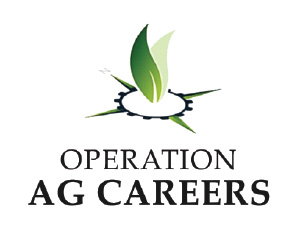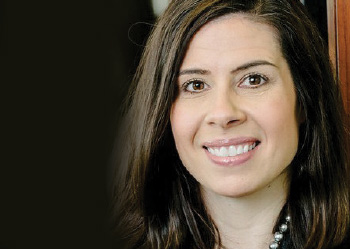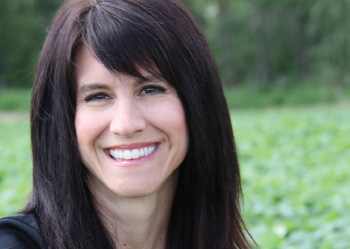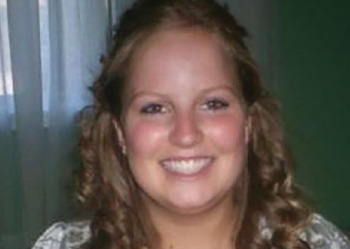Founding partners share why they support CAAR’s forthcoming program

Operation Ag Careers, CAAR’s innovative program aimed at matching exiting military personnel with fulfilling long-term careers in the agri-retail sector, is expected to launch in the first half of 2016. The Communicator spoke to three organizations that have supported the initiative as founding partners, to find out why they think this program has the potential to change the agri-retail staffing landscape.

Theresa Bolton
Talent Acquisition SpecialistParrish & Heimbecker Ltd.
Prior to joining Parrish & Heimbecker (P&H), Theresa was a practice leader in a recuiting agency for 5 ½ years, with a specialization in agri-business recruitment. She is responsible for national recruitment for P&H, including rural and head office positions.

Shannon Earle
Director, Human ResourcesRichardson International Ltd.
As the Director of Human Resources with Richardson International, Shannon provides leadership to HR managers and business partners supporting the various operating divisions in addition to managing a number of corporate programs and policies across the organization.

Trish Meyers
Knowledge and Innovation ManagerFederated Co-operatives Ltd.
As the Knowledge and Innovation Manager for Federated Co-operatives Ltd (FCL)’s Crop Supplies department, Trish provides learning and development opportunities for Western Canadian Co-op agronomists. She received a BSA in soil science and an MSc in soil science from the University of Saskatchewan.small>

Lindsay Rempel
Retail Recruitment and Succession SpecialistFederated Co-operatives Ltd.
Lindsay has been with the Co-operative Retailing System (CRS) for over nine years. In her current role, Lindsay assists in the coordination of retail management recruitment, selection and succession processes for the purpose of sourcing qualified candidates across the CRS. She also assists in solving retail centre recruitment and retention issues.small>
The Communicator: Why is Operation Ag Careers so necessary for the agriculture sector?
Shannon Earle: We see great value in partnering in the program, exiting military personnel have had training in technical roles, and many have post-secondary education as well. We think there is a lot of potential for qualified candidates to join our organization and grow and learn. The candidates’ backgrounds entering the program may not be directly related to the agri-retail opportunities available, however there is a lot of opportunity for training and transference of similar skill sets making them well positioned to enter our industry and become valuable members of the agriculture sector.
Trish Meyers: It comes down to demand. The demand is outweighing supply, particularly when we’re talking about agronomists and agri-managers at retails. It’s important to emphasize that, as farming becomes more complicated and involved, there’s going to be an increasing need for agronomists.
Currently, there’s a shortage of talented candidates in the world of agronomy. This program is important because it exposes a new group of talent that we can potentially tap into. And it’s a pool of people with similar work ethics, values and sense of community. That’s pretty powerful, and hopefully that will fill some of the need.
This program is important because it exposes a new group of talent that we can potentially tap into. And it’s a pool of people with similar work ethics, values, and sense of community. – Trish Meyers
Theresa Bolton: The ag industry continues to grow as the world demand grows. Agriculture needs hard working, ethical people to pursue careers and, coincidentally, ex-military personnel are looking for a meaningful second career that would provide learning and advancement in a sector that is respectable and rewarding. I see this as a perfect example of one industry having a problem and another industry having a solution.
The Communicator: As a supporter of Operation Ag Careers, your organization has been integral in making this program a reality. Why did you step up to support this initiative?
Lindsay Rempel: We decided to support the program because of the opportunity it presents. We see it as a workforce planning strategy for our organization. We are always looking for creative ways to recruit and plan for the future – not just short term “we need someone right now”, but the long term.
SE: That’s exactly where we are aiming our efforts and have as expectations out of the program, as well. We recognize that it will take some time and resource investment in the early stages – this isn’t going to make a difference overnight. With continued recognition of the success of having people hired through this program it will be powerful in recruiting people and getting support from more employers in our industry.
Speaking for our organization, and from an HR perspective we definitely see the value in having an experienced organization like CAAR promoting and working on this initiative.
TB: We see a lot of synergy between the military and agriculture. People that are attracted to a career in the military are there to serve their country in an environment that requires dedication, procedure, safety and hard work. We look for the same qualities in employees in the ag sector. Ag professionals aren’t afraid of hard work, have an appreciation for the industry we are in and understand the importance of safety and process.
The Communicator: What challenges or shortages in staffing does your organization face?
TM: As already mentioned, we could use more agronomists at our agro centres. It seems that we have lots of vacancies and are in need of good, qualified agronomists.
SE: I would echo what Trish said on the agronomy side; that’s definitely an area where we tend to have the most challenges. Certainly in Western Canada, there is currently more demand than there is supply for people with an agronomy background and experience.
LR: One of the challenges we face is the geography of our retails. They are sometimes very secluded, and finding someone to move to a secluded location, stay there, put down roots and become a part of that community, is often a challenge for us.
TB: We also need strong operations people. Students completing their ag degrees and diplomas come out wanting to be on the sales side of the business. Not a lot consider operations as a career path.
The Communicator: Why do you think there is a shortage of talented candidates in the ag sector?
TM: When I think about agriculture grads as candidates, some of them will venture into the environmental sciences industry, or some will go back to the farm, or some will get hired into a crop protection or seed company. They don’t always think about working in agri-retail.
SE: We recognize that in the more traditional ag positions in agronomy, these individuals have chosen a career path and pursued specific post secondary education with the objective of having a long-term career in the ag industry. The challenge from a hiring perspective is that there are just not enough candidates in this stream to cover all the industries and businesses in agriculture.
Generally speaking, if someone has not grown up in a rural background and has not had much exposure to agriculture, there tends to be a lack of awareness of the various professional careers available in the industry which offers a vast range of opportunities in areas including; transportation, marketing, sales, accounting, or human resources.
I think there needs to be more education across the board in post-secondary institutions and elsewhere, on the types of careers, and great opportunities to have a career in the agriculture sector.
TB: I agree with Shannon. Unless someone has grown up with substantial exposure to agriculture they tend to associate a career in agriculture with being a farmer. Additionally, I think there was a lack of interest in pursuing a career in agriculture sometime between the baby boomers and up until recently when there was a push to increase enrollment in post-secondary institutes in the ag programs. More needs to be done in educating future generations on careers in agriculture.
The Communicator: What do you see Operation Ag Careers doing that hasn’t been done before?
SE: Certainly the more that we can do to promote jobs and opportunities with a specific focus on ag, the better for all of the employers within the ag sector.
TM: This program is being creative in where they look to fill the need in agri-retail staffing – it’s opening up minds to possibilities. We know there’s a need for agronomists, but we in the ag sector haven’t really done anything different in order to find a solution to this problem.
Sometimes in the ag field, we do think outside the box in terms of looking beyond agriculture-trained candidates. We might think to hire someone from commerce, or a biology grad – not just agriculture. This program takes that same mentality and expands it, and casts the net even wider, to a group who may never have been approached before about working in ag. Now we are being creative and looking at recruitment possibilities through a different lens.
TB: This program will educate and advocate for people to pursue careers in agriculture. We need all the help we can get in terms of delivering the message that a career in agriculture can be interesting, exciting, lucrative and rewarding.
The Communicator: What do you think the agriculture sector stands to gain from this program, and why should other agri-retail organizations support it?
LR: I think agriculture stands to gain skilled, loyal employees who are willing to be trained to expand on their skill set, and those who already have transferable skills and can take some hands-on learning from retail ag employers.
TB: Operation Ag Careers will allow us – the agriculture industry as a whole – to connect with professionals who are passionate about finding a new and rewarding career.
SE: I see this as being about a community partnership. It’s a win-win relationship. The employers in agri-retail have a need, and we’re looking for individuals who fit the culture of our business, work ethic and skills.
We recognize these are a group of individuals who want to contribute and have the abilities to contribute in a meaningful way in a growing industry. They are in a position where they have had a career change and are open to new opportunities. Operation Ag Careers is a community-based, larger initiative that connects these two groups.
TM: I think if we look at this holistically, farmers stand to gain as well. As I mentioned, farming is not getting simpler. It’s getting more complex, especially when we take into account precision agriculture, sustainability, crop nutrition, the choices farmers have to make, and how farms are getting bigger. I know that farmers rely on agri-retailers for their information and to help make the best decisions for their farm. So if we have more qualified, trained people working at the retail level and working with the farmers, that’s how everyone stands to gain. If a new influx of workers can help improve the industry, and help farmers to produce more food with less resources, be more efficient and sustainable – that’s a good day for everyone.
There’s another factor to why we wanted to support this program: it seems like the right thing to do. It seems like a rewarding program in many ways, because we can’t lose sight of the fact that these people have served their country. More than a workforce strategy, it’s like a demonstration of appreciation. No doubt, Operation Ag Careers is a win-win initiative. But it also feels like the right thing to do, to support these candidates and help them find a fulfilling career.
Related Articles
- Panel Discussion: eConnectivity Members of industry-led AgGateway sit down for an insightful conversation on eConnectivity and where the opportunities and challenges may be for retailers considering it. Moderator: Brent Kemp, Executive Vice Pres...
- Retailing in the Age of Trade Barriers The Communicator asked three industry experts for their take on industry ramifications of the current state of tariff and non-tariff trade barriers. From left to right: J.P. GervaisVice-President and Chief Ag...
- Panel Discussion: Farmer Forum Three Manitoba farmers share challenges and opportunities for their farms and how they want to work with their ag retailers. From left to right: Danny PennerLetellier, Man.Penner is a third-generation farmer. Alo...
- Panel Discussion: Mergers and Acquisitions Four industry leaders provided their insight into the recent wave of mergers and acquisitions and shared their advice for ag retailers during the 2019 CAAR Conference. From left to right: Al DriverBayer CropScien...
- Getting on the Same Page Ask a room full of people what sustainability means, and you’ll get a room full of answers. In this Perspectives discussion, three members of Canadian ag share their views on sustainability, and how we can get on the...
 How to resolve AdBlock issue?
How to resolve AdBlock issue? 
Join the discussion...
You must be logged in as a CAAR member to comment.
Report
My comments